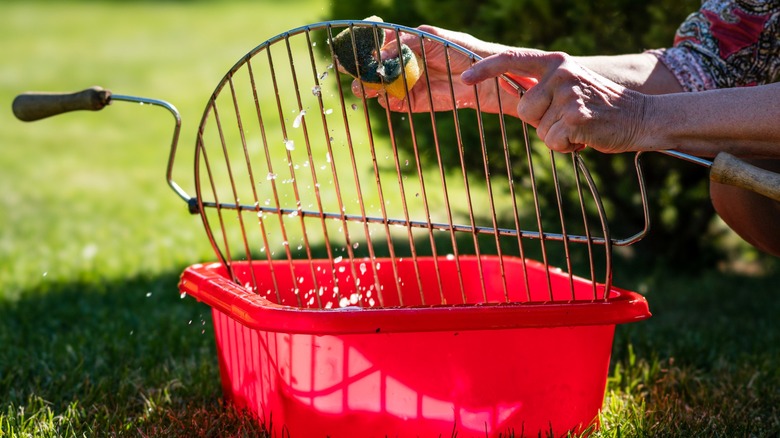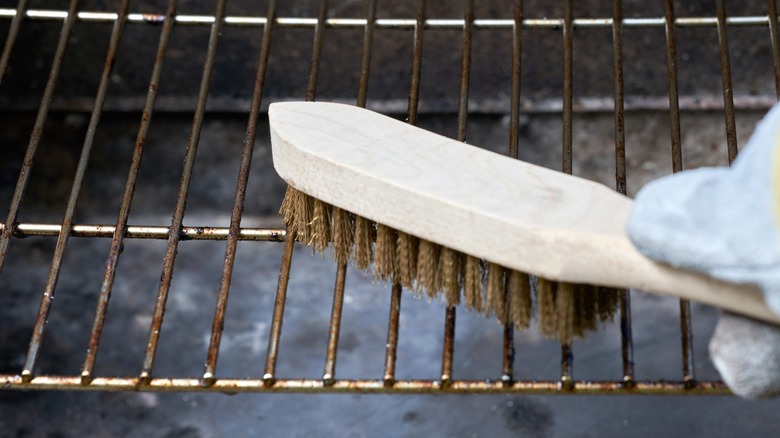If You're Going To Use Chemical Cleaners On Your Grill, Never Skip This Step Before Cooking
Sure, you can make a DIY solution with pantry ingredients to clean your grill. But if you aren't cleaning your BBQ as often as you should, those vinegar and baking soda mixtures might be too wimpy to eliminate stuck-on grease and gunk buildup. Heavy grime accumulation calls for something with a bit more power. However, if you choose to resort to extreme measures, you'll also want to make sure you aren't ingesting any harsh chemicals the next time you toss some burger patties on the grill.
Scott Thomas, owner of The Grillin' Fools, offered some advice on what to do when using chemical cleaners to get your cookware spic-and-span. Some folks steer clear of chemical cleaners because they fear any leftover residue will transfer onto their next barbecued meal, but Thomas wasn't so sure. As he put it, "Not if you let the fire rage for a few minutes and cook everything off."
It's important to note that before you go firing up the BBQ to remove chemical residue, ensuring the amount of it stuck to the grates is minimized by thoroughly rinsing off any product used to clean it. Once you've rinsed away what you can, get the heat cranking and close the lid for about 15 minutes. After that, those tasty barbecued burgers and dogs shouldn't capture anything from the grill but a delicious, smoky char. However, not all grills are built alike. Depending on what you use for summer cookouts, using chemicals to clean your grill could affect its longevity.
Chemical cleaners aren't the best for all grills
Even though Thomas doesn't fear using chemical cleaners for his grill, it's not something he does regularly -– or ever, for that matter. "I've been doing this for more than 30 years and have never used chemicals to clean the inside of my grill," he said. "Sure, the outside I will clean with a disinfectant wipe or stainless steel cleaner, but I'm not using that on the inside. Heat and elbow grease is all I need."
That's good news if he ever uses a grill with porcelain-coated grates. These kinds of grills are a bit more sensitive to chemicals. Over time, the grates can become blemished and run-down. As with any valued appliance, it's wise to check the manual to ensure your cleaner of choice won't damage it.
As Thomas said, heat and elbow grease are usually the best tools for cleaning a grill rack. "Heat up the grill and brush away any old food pieces and grease that didn't melt away," he said. Not only does it prevent you from worrying about any errant chemicals latching onto smoky steaks, but it also improves the device's performance.
"Particularly with cast iron grill grates," Thomas explained. "The residue from food is almost kiln-baked into those grill grates and seasons them just like a cast iron pan." Folks familiar with using a cast iron pan know that it works best when properly seasoned, and the same concept applies to grill grates. "More seasoning means more flavor and better grill marks when searing."

